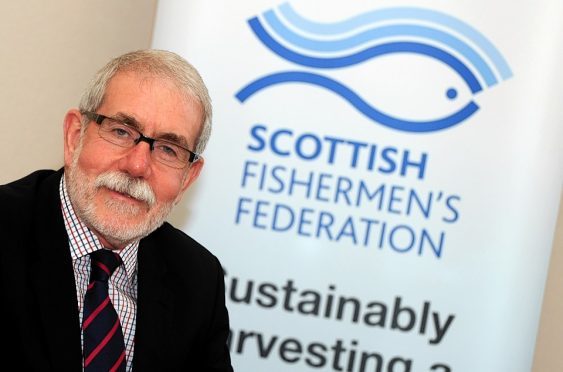New research at Aberdeen University has highlighted the potential size of the prize awaiting Scots fishers after Brexit.
The study looked at 17 commercially key Scottish fish stocks, focusing not on how big they were, but on their distribution.
Comparisons were made between the percentages of fish largely contained within the UK’s exclusive economic zone (EEZ), out to 200 nautical miles, and quota allocations.
For all but three of the species studied, current UK quotas are significantly below stock levels within the EEZ.
And according to Scottish Fishermen’s Federation chief executive Bertie Armstrong, these results strengthen the case for the UK seizing control over its territorial waters after Brexit.
“It’s not fair and it’s not right,” Mr Armstrong said at a recent meeting of the North East Scotland Fisheries Development Partnership in Aberdeen.
He argued Scottish fishers were at a disadvantage under the current EU arrangements and added: “This is not a land grab or an act of aggression – these are our waters.
“We are simply seeking a return to normality. This is a natural resource which belongs to us.”
Aberdeen University’s research, carried out by Paul Fernandes and Nial Fallon in the school of biological sciences, suggests that, for some species, UK quotas should be six times bigger than they are, because of the volume of fish in the EEZ.
Mr Armstrong said: “The message of this report is very clear.
“The fish are overwhelmingly here in our waters, but our boats are entitled to catch only a small proportion of our own natural resource under the absurd Common Fisheries Policy (CFP).”
Meanwhile, Scots Tory rural affairs spokesman, Peter Chapman, said yesterday he welcomed comments from fishing chiefs about the “gigantic” opportunities afforded by Brexit.
The north-east MSP was speaking after a rural economy and connectivity committee session on the implications for Scotland of the UK leaving the EU.
Fishing industry representatives giving evidence included Mr Armstrong, who hailed the “game-changing” potential of exiting the CFP.
Mr Chapman added: “For many people in my area of the north-east, Brexit is viewed as a tremendous opportunity. I think that was echoed by many of the contributions to the session.”
But Banff and Buchan MP, Eilidh Whiteford, later insisted a second independence referendum could be the best protection against fishing being used as a bargaining chip in Brexit negotiations.
Ms Whiteford said: “There’s been intense speculation that Scotland’s fishing interests are already a pawn on the table.
“It would be a travesty if the opportunities created by leaving the CFP were squandered by yet another sell-out of our catching sector.”
